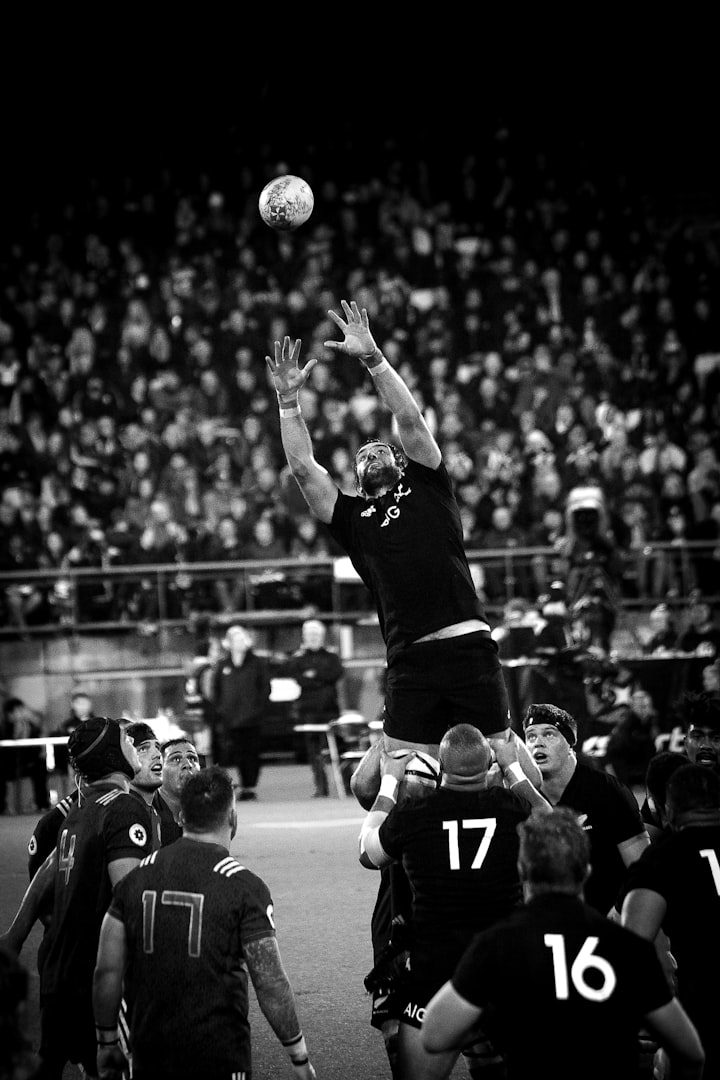The Cost of the Win - brain deterioration in sport
Is the win worth the loss of your cognitive function?

This weekend sees the start of the Six Nations Rugby Championship and I am viewing it with mixed feelings.
For those of you not in the know, let me explain what the Six Nations is. It is a competition between six rugby playing nations comprising of England, France, Ireland, Italy, Scotland and my homeland, Wales. All teams compete against each other over the space of a couple of months and their results are entered into a table according to a point system. The team with most points is crowned the victor. If they have won all of their games, they win the Grandslam, a highly coveted accolade. If they come bottom, they effectively win the "Wooden Spoon", a figurative title rather than an actual trophy.
It's not just the rugby that I have mixed feelings about; these are extended to most sport in our modern age. I love watching it and I love my kids participating in it but it concerns me the way it is heading or has been heading for some time now.
I have written about my reservations as a mum before in my article where I felt like the win was more important than the experience for my child. Ultimately, I was starting to feel like it was less about my kid playing sport and more about the team winning. Everyone wants to win the game - I get that. No-one is more vocal on the sidelines than me whether it's my country or home team playing and performing well or not, as the case may be; or if it is one of my sons running towards a goal or a touchline and scoring, or executing a perfect and crucial tackle. It sends a thrill of many emotions through me: pride, excitement, happiness.
In those moments, I am glad that my kids are playing and participating in sport. They are getting exercise with friends and being taught what it means to be part of a team and experiencing the frisson that comes from doing well at it. They are also learning what it is to lose and how to rise up from that disappointment. That is sport's good side.
But more and more, it seems that sport has a bad side and that this is no longer remaining in the shadows but is being highlighted more and more. And it's not pretty. The win has a cost and it is more than what is spent monetarily on coaching, equipment and contracts.
I am talking about the cost to human life.
I don't mean that sport is killing off people. It is not gladiatorial or bloody or barbaric. There are injuries and there is bodily contact and the odd smattering of blood but this is rare for most sports. However, as time goes by, more and more sportsmen and in particular for the discussion in this article, rugby players are finding that their lives are less after retiring from sport and this is not solely because of the vacuum left by no longer having gruelling training schedules and away games.
It is because of dementia.
I have had personal contact with dementia and know how it looks. It's not pretty; it is cruel; it reduces and shrinks people to a mere glimpse of what they once were, making them virtually unrecognisable to us in all but flesh. It takes the strongest person to endure this disease and it takes the strongest family to be able to support them through it.
A couple of things happened this week to make me think about dementia again. Firstly, the rugby.
Watching the Six Nations this weekend reminded me of a programme that my husband and I watched some time ago. It was about Steve Thompson, an English rugby player from the World Cup winning squad of 2003. I was aware of him as a player, more from archive footage than from the man depicted on the screen before me.
As you would expect, he is tall and broad-shouldered with a thickness to his upper physique which suggests power and force. He is articulate and confident and not too different to the younger man who was England's star hooker* some years previous.
However, Thompson is a completely different man and this becomes evident as the documentary unfolds.
He forgets. He forgets that he has left the car running; he forgets what he is doing while he is doing it; he forgets the names of his children. At the start of the documentary, he was 42.
At a young age, he is becoming lost and he is aware that it is happening.
He is not the only one.
Ryan Jones, a former Welsh rugby captain has shown similar symptoms and has also been diagnosed with early onset dementia. He was 41 at the time that he discovered this with three children and three step-children. Both were sportsmen competing at the highest level in their chosen sport and proud countrymen, willing to put on that jersey and perform to the best of their ability.
But I do wonder if they would have entered into it with the same gusto if they had known what the cost of that commitment would have been? Steve Thompson is certainly reflective on his career, viewing it with a tainted pride. It gave him so much - kudos, accolades, a World Cup - but it also stole something extremely precious: his mind, his ability to function effectively.
He is fading and worse than that, he is conscious of it happening and can do nothing at all to stop it.
He is, relatively speaking, a young man who may live a long life. However, chances are he will not remember living it.
It was heartbreaking to watch.
The second thing that happened is that I reviewed a book of poems about dementia called Poems For Those Who Care written by a man called Patrick McTaggart as well as others, including myself. Patrick cares for his father with dementia as well as his frail mother, retiring early to do so. He writes poems to clarify his own feelings but also to share his experience with others and to provide support and empathy to those in the same situation. Admirably, he also donates the proceeds to Alzheimer's Research UK to further the investigation into this terrible disease and seek a way to condemn it to a place where it will never be seen again.
My grandmother had dementia. I wrote a poem called "Nanny" for Patrick's collection which he very kindly included. I wrote it some time ago and had not revisited it until I was reminded of it when reading it in the collection. As expected, it transported me again to memories of my grandmother; as a very young girl when she held my hand and made me my favourite sandwiches, to the days where she had left us cognitively and was a human shell, lacking interaction and presence, shrunken and static.
So, as you can see, it was uppermost in my mind.
Watching the rugby yesterday, it struck me again how much enthusiasm we put into sport and competing and winning. I was cheering Wales on with shouting and clapping and even though I was just at home in front of a screen, I felt the thrill of it. Imagine actually being involved in the game itself! The cheer of the crowd, the fight of the ruck, the success as a try is scored or other points gained or opponents thwarted.
It's all quite tribal - the battle without the extreme loss.
Except for some players, something is being lost. And yesterday, I couldn't help but scowl at some of the tackles where I wouldn't have before or wince at the landings some of the players made, especially if it involved the upper half of their body. Slow motion is constantly used in review nowadays and the visible shaking of a player as someone collides with them or forces them to the floor, spittle flying from their mouths or grimaces of pain slowly realising themselves on their faces is a staple of televised sport.
It's not nice to watch: I recognise that it is part of the game and always have. But it has a sharper edge to it now for me and one that I do not like.
I feel decidedly uncomfortable because I know that this is not going to alter any time soon; of that, I am sure. The reason?
Because sport is such big business monetarily as well as socially - it is a spectacle, a thrill, a moneymaker. As such, the drive to cultivate the win will always supplant the need to nurture. There will be a cover up before there will be an awakening.
Is sport worth this cost? Is the need to win, to come out on top in that sporting moment, to raise the cup worth losing so much later? Is the glory of the triumph enough compensation for risk of the potential encroachment of debilitating mental illness?
I just can't reconcile this in my mind.
I think that it is going to have to be down for the individual to decide, the sportsman or sportswoman to weigh up whether the heights of the podium is better than the torture chamber evoked by the possible loss of extended cognitive function,
If the medals are worth more than the memories.
For me, the choice is clear.
The win is not found in the win.
About the Creator
Rachel Deeming
Mum, blogger, crafter, reviewer, writer, traveller: I love to write and I am not limited by form. Here, you will find stories, articles, opinion pieces, poems, all of which reflect me: who I am, what I love, what I feel, how I view things.






Comments
There are no comments for this story
Be the first to respond and start the conversation.